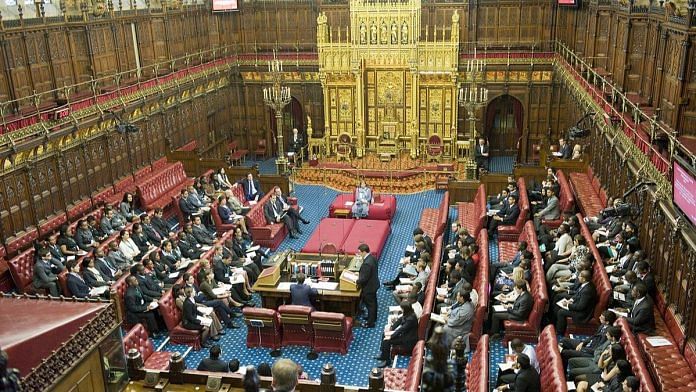On 10 July, I had the privilege of attending a fascinating event at the House of Lords. But what really caught my attention was the announcement that came after – for the first time ever, an event celebrating India’s Independence will be hosted by the upper house of the UK parliament.
So what has caused this change in the India-UK relationship? During the expert discussions at the ‘India and the Indo-Pacific’ roundtable, hosted by the 1928 Institute and organised by the All-Party Parliamentary Group on India – Trade and Investment and APPG Foreign Affairs, it became apparent that the Indian economy is a significant factor. Speakers highlighted that India could become the world’s largest economy by 2060. Additionally, the recent announcement by the UK to join the Comprehensive and Progressive Agreement for Trans-Pacific Partnership (CPTPP), a major trade bloc in the Indo-Pacific region, signifies a shift in the country’s approach toward India.
But is economy the only factor driving such change? Not really, because I could see this progress would not have been possible without the British-Indian community’s active interest in organising such celebrations. In the past, the Indian diaspora very popularly disassociated from its ethnic origins and vehemently emphasised its British identity – a trend being overturned by the younger generation. Some individuals openly acknowledge their Indian roots, while others present intriguing arguments about being ‘culturally British’ but ‘politically Indian’. This raises the question of whether the Hindu community, which previously lacked cohesion as a political group, is moving toward unity. It would be interesting to see if the Hindu political identity extends beyond India.
Also read:
Addressing gaps in our relationship
The meeting revolved around India-UK cooperation, but unfortunately, and very noticeably, nobody wanted to address sensitive issues – such as the threat of Khalistani terrorists or communal events like the Leicester riots – that exploit every possible fault line to tarnish India’s reputation. This silence reveals gaps in the India-UK relationship and raises questions about further cooperation. Following the roundtable discussion, Keir Starmer, a Member of Parliament from the Labour Party, addressed the guests, particularly those from the Indian diaspora. He expressed his desire for cooperation in countering terrorism and forming strategic alliances on other important fronts.
Starmer, widely regarded as the UK’s ‘prime minister in waiting’, stressed on the importance of moving forward and learning from the past, indicating his intent to garner the Indian diaspora’s support. However, a crucial question lingers: While India offers the UK an alternative to Chinese trade dependency and a reliable democratic partnership, why is it that elements opposing Indian sovereignty find a place on the nation’s soil? Recently, Khalistani elements took down the Tricolour from the Indian High Commission in London, and the British police failed to provide any security despite being alerted. This gives rise to uncertainties about the UK government’s commitment to the Vienna Convention (which grants immunity to diplomatic missions abroad) and to the ambitious strategic alliances set out for the India-UK relationship. It sends a wrong political signal to India—that the UK establishment does not respect its sovereignty and territorial integrity, allowing secessionist political activity with links to Pakistani intelligence operatives in Britain.
Genuine understanding and cooperation cannot be achieved without addressing some hard truths. Acknowledging realities, having open discussions, and respecting all parties’ sovereignty, territorial integrity, and internal affairs, are essential for fostering meaningful alliances.
In the end, as an ordinary Indian citizen participating in a high-level diplomatic meeting, I couldn’t help but wonder if these affluent, privileged individuals could truly comprehend or empathise with the perspectives of ordinary people. At that moment, I felt a deep appreciation for the fact that Prime Minister Narendra Modi comes from a background connected to the masses. It made me realise the power of our voting rights, which we often undervalue. Without the ability to vote, would these systems genuinely take into account the concerns of ordinary individuals?
Amana Begam Ansari is a columnist and TV news panelist. She runs a weekly YouTube show called ‘India This Week by Amana and Khalid’. She tweets @Amana_Ansari. Views are personal.
(Edited by Zoya Bhatti)



